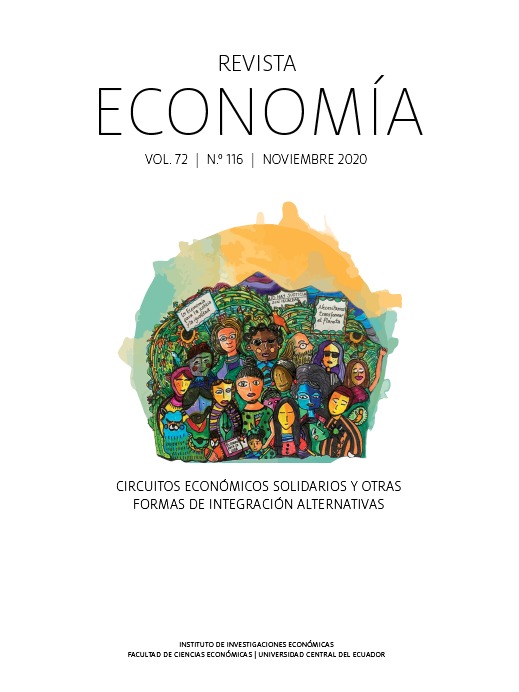The CONSTRUCTION OF INTERCULTURAL SOLIDARY ECONOMIC CIRCUITS IN THE CANTON CAYAMBE Case study of BioVida
Main Article Content
Abstract
The intercultural solidarity economic circuits (CESI) in Ecuador are spaces for relationships that go beyond the economic, as an alternative practice to the conventional economic model. Their forms of relationship promote a development centered on people and nature. They promote the articulation of the supportive actors in the territories, the satisfaction of fundamental needs, the expanded reproduction of work and the ontological relationship with nature. The actions of the CESIs are based on the Social and Solidarity Economy and are linked to the territory, understood as the result of a “social construction”. The strategies used by the circuits are based on the articulation of the actors that promote new social relations of production, sharing knowledge, practices and experiences. In this sense, the research is analytical, which studies the factors that allow the constitution of the CESI through the experience of the BioVida organization. It is determined that the articulation of the ESS actors and interculturality promote the formation of the CESI where the social bond, the generation of work, solidarity finances and political incidence in the territory are strengthened.
Downloads
Article Details

This work is licensed under a Creative Commons Attribution-NonCommercial 4.0 International License.
The authors who publish in this journal accept the following conditions:
- The authors retain the copyright and assign to the Economics Magazine the right of the first publication, with the work registered under Creative Commons Attribution-NonCommercial 4.0, which enables third parties to redistribute, commercial or non-commercial, of what has been published as long as the article circulates completely and without changes.
- Authors can make other independent and additional contractual agreements for the distribution of the article published in this journal (for example, add it to an institutional repository or publish it in a book) as long as they clearly and clearly specify that the article was published for the first time. once in Revista Economía. In case of reproduction, a note similar to the one presented below must be included: This text was originally published in the Revista Economía No.…, volume…, number of pages, year of publication.
- Authors are suggested to publish their work on the internet (for example, on institutional or personal pages) of the final version published by Revista Economía since this can lead to greater and faster dissemination of the published article.

